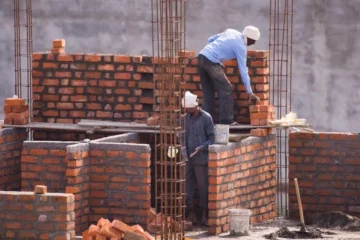
One of the key beneficiary of the goods and services tax, which got Rajya Sabha approval could have a positive impact on the real estate sector, believe experts. They see it as a tax reform which would bring in change for the sector in terms of transparency and cost, driving the demand in the sector. The GST, which is the biggest indirect taxation reform in the country, will replace the various state and local taxes with a unified tax system.
Real estate sector works in tandem with over 250 other sectors such as steel, BFSI, IT, cement etc and any kind of impact of GST on these sectors will have an indirect affect on the real estate and vice versa. Thus, it is expected that GST would have very limited tangible benefits on the real estate industry but the cascading effects will definitely be higher.
We take a look at what these 5 real estate experts are saying about the GST vis-a-vis real estat sector
Brotin Banerjee, MD & CEO, Tata Housing
“The Goods and Services Tax is likely to be a game changer for the real estate industry, which is currently facing issues of multiple taxation amounting to over 25 percent in indirect taxes. With the uniform tax, developers will have free input credits on GST paid for services and goods purchased by them which will reduce cost and can be passed as reduction to buyers. It will benefit real estate sector by ensuring a uniform tax structure and improve tax compliance by developers. It looks at bringing in greater transparency for the sector and may minimize unscrupulous transactions. GST will have a cascading effect for the homebuyers, as developers with more margins in their hands will be able to restructure the cost of the products in favour of consumers.”
Neha Hiranandani, Director, House of Hiranandani
“The Goods and Services Tax (GST) would be a harbinger of change for the real estate sector which is currently plagued with a myriad of indirect tax issues both at the centre and state level. We hope that the bill brings in a more comprehensive and uniform tax structure that will ensure greater transparency in the sector. The GST will enable a smooth and seamless distribution network in India which will lead to in-time delivery of building material across India.
One of the positives that might come from the bill is removal of restrictions on credit utilisation that will strengthen the credit chain in the system. However, since GST will be applicable on the materials purchased by the developer to construct the project, it will have a direct impact on the total costing of the project. The bill treats construction activities as “work contracts” but is silent about guidelines on valuation of land and has kept the sector away from input tax credit. This could mean higher costs for the end consumer. Also, implementation of the bill will not subsume the stamp duty levied by the states, who may increase it from time to time to meet revenue targets thereby pushing costs higher for the buyer.
It will be important to see what the final rate of GST would be because if the rate is higher than the existing cumulative taxes, it will certainly be dampener as it will increase the final cost for buying an under construction flat and defeat the purpose of the bill.”
Anuj Puri – Chairman & Country Head, JLL India
“Currently, in the case of buying an under-construction flat, a home buyer needs to pay both Service Tax (4.5%) and VAT (1% in Maharashtra, varies from state to state). Additional indirect taxes are paid by the developer during procurement, which get built into the cost of an apartment. Stamp Duty (5% in Maharashtra, varies from state to state) which is payable on property transfers, is not going to be subsumed into the GST. The direct impact of GST on real estate, in terms of tax outflow for developers and consumers, will depend on whether the final GST rate is more or less than the taxes paid currently. Apart from the significant reduction in tax management expenses due to a single unified tax, the compliance costs will go down too.”
Shishir Baijal, Chairman & Managing Director, Knight Frank India
“For the real estate sector, the GST will streamline the domestic supply chain that will lead to a consolidated and efficient warehousing infrastructure in the country. This will give the much needed push to the retail and industrial sectors to grow. The positive sentiments after the passage of the GST bill will receive a further boost if RBI does its bit in reducing policy rates on the back of a good monsoon and controlled retail inflation in the economy.”
Anshul Jain, Managing Director, India, Cushman & Wakefield
“GST would benefit the overall real estate sector by ensuring a uniform tax structure, thereby improving the tax compliance by the developers. The GST Bill would replace most indirect taxes that currently exist, with one tax, thereby ensuring an efficient taxation system. Under GST, developers would see lesser burden of tax on input items like cement, steel, etc., as tax credits would be available for set off at various stages. This can lead to lower construction costs for developers across all asset classes, which could likely be passed on to property buyers / occupiers. However, the magnitude of impact of GST on the sector would hinge upon the final rate of GST decided by the government and more importantly on the actual implementation. The time frame for rolling out the GST will stay take some time and the initial period, maybe up to a year, will mainly be needed to take care of any problems that arise in implementation. Hence, actual benefits for final consumers / buyers and the overall positive impact on the economy may take longer to get manifested.”
[Source:- The Financial Express]




